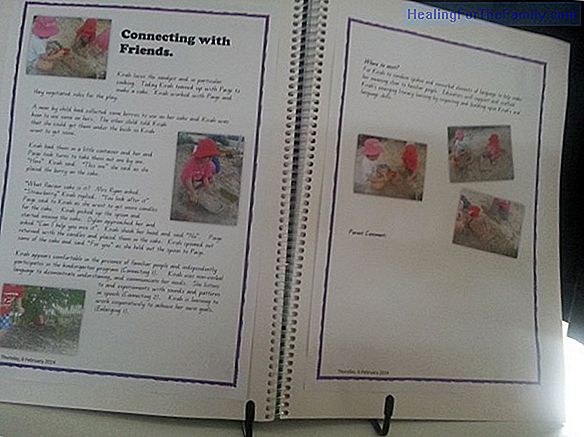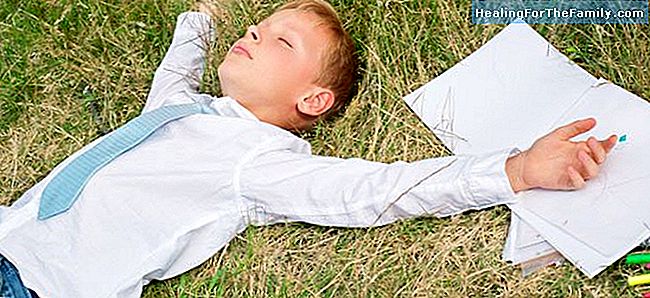When the child always has the opposite
"My son does not stop to contradict me and is consuming my patience". This is a very common statement among many parents. Above all, among parents whose children are between 2 and 4 years old. Although it is also a situation that occurs when children start school. This type of behavior of children h
"My son does not stop to contradict me and is consuming my patience". This is a very common statement among many parents. Above all, among parents whose children are between 2 and 4 years old. Although it is also a situation that occurs when children start school.
This type of behavior of children has a parallel with adolescence. For this reason, this period is usually called: "adolescent childhood" and coexists with the period of tantrums.
Why children take the opposite

- In this time of contradiction the child what he wants is to be independent and make decisions for himself.
- This defiant attitude is more likely to happen when they are tired, hungry, stressed or upset. - This type of behavior is often a normal part of development in young children. For example: just be defiant with the person closest to him, or
maybe he just feels unfairly treated lleva and takes the opposite to the adults to make them see how he feels and even does not feel well in the environment of the school But you should be concerned when it occurs frequently and consistently and the behavior that it shows excels in comparison with other children of the same age and stage of development. Also when it affects the normal functioning of social life both in the family environment and in the school environment. What to do when the child is contrary
This stage in the development of children occurs naturally and is transient but usually becomes a burden for parents. So what can you do to cope with it during this period?
- Be patient
. Do not lose your nerves or let it provoke you. You have to take a deep breath and count to 10.
- Beware of punishment. We must remember that this phase is something natural. He is learning to communicate his will. Punishing does not help.
- Help him. When it takes the opposite is defending. Before punishing and getting angry, see how your behavior is doing. Maybe he's right? You do not lose anything to check it.
- Autonomy. It provokes situations in which it can be independent and thus give it what it asks for. For example, offer alternatives such as choosing where you want to go to play instead of imposing yourself.
- Speak. Even if you think that the child is still very small, try to talk to the child so he can explain why he has contravened you.
- Do not allow rises in tone. If the child not only contradicts you but uses shouts, insults or elevates their aggressiveness, you must remain calm but be firm and make it very clear that you will not tolerate that behavior
- Ignore. If the child is still determined to take the opposite and is not willing to talk to you or to put a solution, ignore the behavior and do not focus your attention on that behavior.












